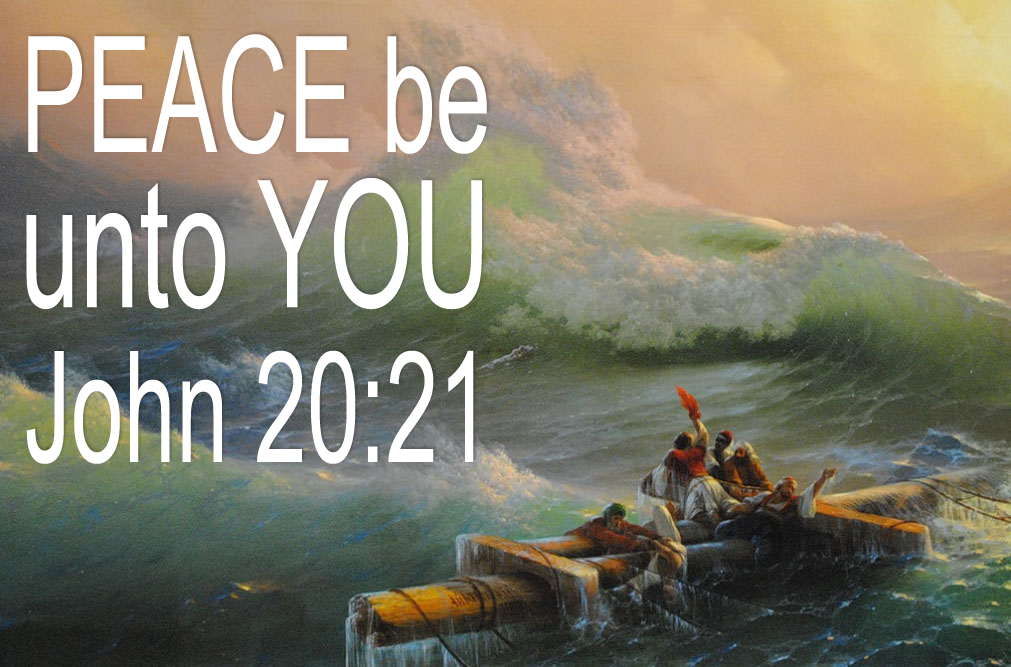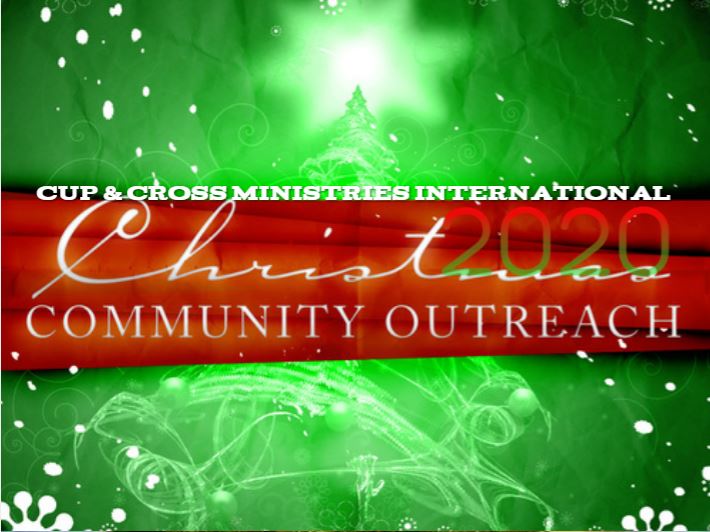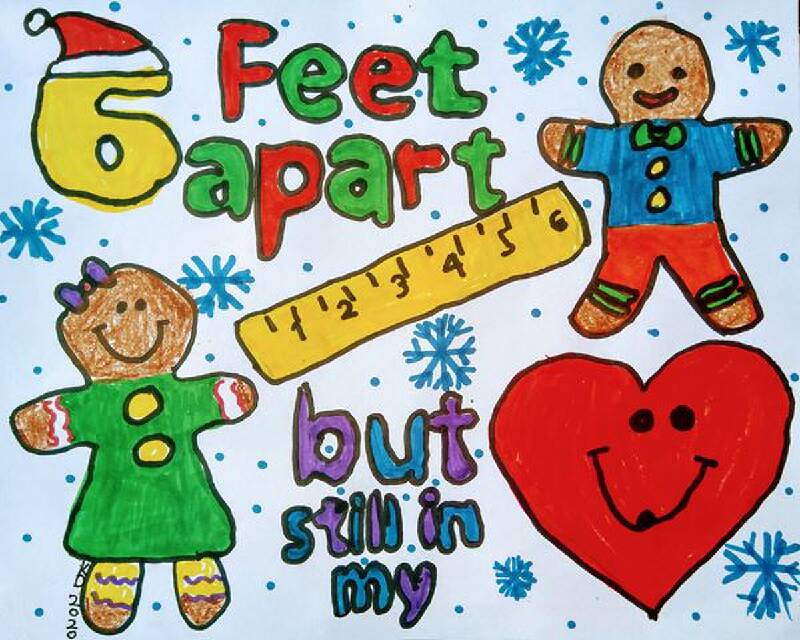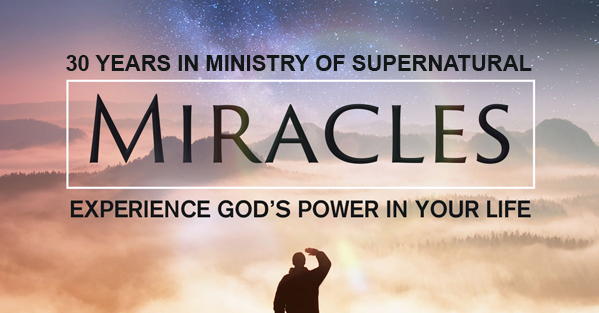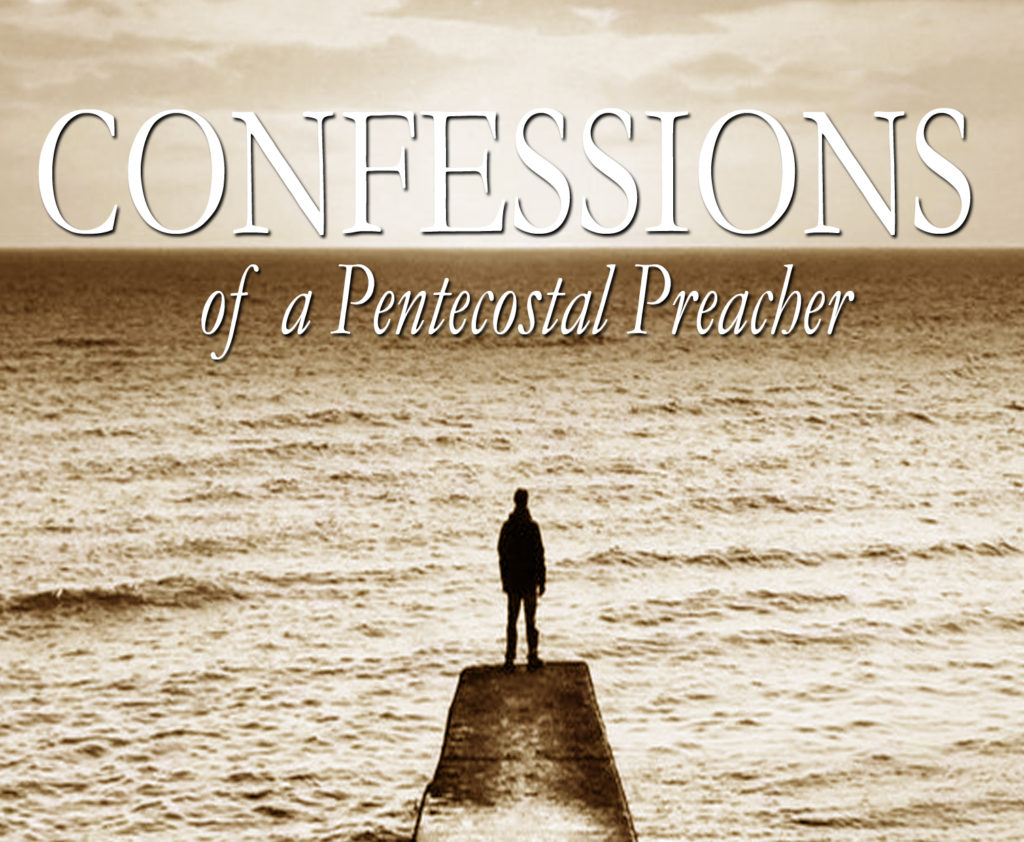At the end of each year…
At the end of each year, we take time to reflect on where our journey has taken us. Certainly, 2020 will be a year many remember, filled with challenges and opportunities that tested our strength, our resolve, and our ability to problem solve and withstand all storms in life with the power of Pentecost. Although we continue to navigate conditions and situations that impact our ability to meet needs, it is clear that the resilience and perseverance of Kingdom Ministry is like no other.
As news and events shook the world, we united. Our ministry took to social media, online forums and hundreds of live broadcasts around the globe to share resources and ensure continuity of spiritual care and networking. We reminded each other of the importance of spiritual self-check and spiritual self-care. We leaned on each other, offering support and ways to connect, despite the distance. We did not allow circumstance to change schedule and goals. As in the past 30 years of ministry, we did our best to adjust and proceeded as planned regardless of the ever growing difficulties. As time progressed, we became stronger and more adaptive.
As 2020 comes to an end, it is important that we take time to appreciate these connections as well as the support of our partners and co-workers in this ministry. Our fortitude and our collective purpose, firmly rooted in our need for togetherness, for answers, and for personal growth, will see us through.
We thank you for being part of the Cup and Cross global family!
We wish you and your loved ones a safe and wonderful New Year filled with opportunities and promise.
Peace be unto YOU in 2021… (John 20:21)
Christmas Community Outreach 2020 Brings Holiday Cheer
This past Wednesday, thanks to the many volunteers, nearly 200 Christmas gift-bags were delivered to local families in our US, Bulgarian and UK locations. Each bag looked different. Some were filled with candy and a toy while others had either a book of prayers or food. For those families whom the Lord spoke directly to us about, they received a special gift from our ministry partners in Israel. We thank all of those who participated this year and ministered beyond boarders and walls. We wish you a Merry Christmas and pray a special blessing of abundance.
Merry Christmas from ALL of us…
Can Christians celebrate Hanukkah?
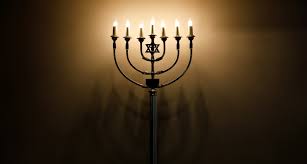 Hanukkah, the Jewish Festival of Lights, began Sunday, a holiday which starts on the 25th of the Jewish month of Kislev and lasts for eight days. In the Gregorian calendar it begins December 2 and concludes December 10 in 2018. Hanukkah is also known as the Feast of Dedication, and while it is not written about in the Old Testament, it was an observance Jesus took part in during his earthly life.
Hanukkah, the Jewish Festival of Lights, began Sunday, a holiday which starts on the 25th of the Jewish month of Kislev and lasts for eight days. In the Gregorian calendar it begins December 2 and concludes December 10 in 2018. Hanukkah is also known as the Feast of Dedication, and while it is not written about in the Old Testament, it was an observance Jesus took part in during his earthly life.
“At that time the Feast of Dedication took place at Jerusalem. It was winter, and Jesus was walking in the temple, in the colonnade of Solomon,” John 10:22-23 recounts.
The holiday is fundamentally about the miracle of God being with the Jewish people during a time of great hardship and persecution.
Christian Hanukkah Tradition
Jews across the world are about to celebrate Hanukkah, the Jewish festival of lights. Few know that Christians also claim the story as part of their tradition.
Adherents of both faiths agree on the basics. About a century and a half after Alexander the Great’s conquests, Israel was ruled by the Seleucid dynasty, established by one of Alexander’s successors. The Seleucid king, Antiochus IV, aggressively persecuted Jews and erected a pagan altar in the middle of the Temple in Jerusalem. A band of Jewish fighters led by Judas Maccabeus mounted a resistance to Antiochus’ forces, and the Maccabees eventually recaptured the Jerusalem Temple.
Jewish literature, compiled by rabbis in late antiquity, preserved and retold these stories. Two Jewish works from the Hellenistic era, known as the First and Second Books of the Maccabees, also inform our understanding of the events. While these works didn’t become a part of the Jewish scriptures, they comprise part of the biblical canon for the Roman Catholic and Orthodox churches.
These Christians focused almost exclusively on the theme of martyrdom. In particular, they were fascinated by a narrative found in 2 Maccabees about an anonymous Jewish woman and her seven sons who allowed themselves to be tortured and killed by Antiochus rather than violate their faith. Early Christian writers understood the Jewish martyrs as role models, who achieved the ultimate goal of escaping this world for a better one. According to Ambrose, the fourth-century bishop of Milan, the mother could have encouraged her sons to avoid death, “but she considered that her maternal love lay in [urging] her sons to a life that is everlasting rather than an earthly one.”
The authoritative story of the Maccabean era in Jewish tradition is quite different. Jewish rabbinical literature in antiquity didn’t focus at all on the Maccabean martyrs in the context of Hanukkah. Instead it emphasized the role of the Jewish fighters and what happened after their victory. Like the Christian retellings, Jewish tradition focused on the partnership between man and God. But rather than locating that partnership in heaven, it identified it here on earth.
Jewish tradition’s emphasis on the Hanukkah miracle of the oil reinforces this point. In a story popularized in American culture by Jewish celebrities like Adam Sandler, rabbinical literature records that when the Jewish fighters finally recaptured the Temple in Jerusalem, they sought to rekindle its seven-branched oil lamp, best known by its Hebrew name, menorah. Although they only had enough oil for one night, it lasted miraculously for eight nights until the Jews were able to procure a new supply. This tradition focuses on temporal existence. The miracle of the menorah allows the Jews to work at resuming their regular lives here on Earth.
While Christian tradition connected the story of the Maccabean era to the Temple’s menorah, it did so in a different way. In praising the Maccabean martyrs, the Syriac Christian writer Severus of Antioch wrote: “Not so [truly] did the candlestick of seven lights which made glorious the temporal Temple give light, as did this woman with the seven human lights, her sons, give light to the Church.” Severus played down the significance of the Temple’s menorah by comparing its seven branches with the seven martyrs who left this world behind.
These two ways of remembering the Maccabees reflect larger differences between modern Jewish and Christian storytelling. Many have noted the deep Christian influence on high fantasy, like “The Lord of the Rings” and “The Chronicles of Narnia.” These epics stage the battle between good and evil in worlds not our own. By contrast, Jewish influence is most conspicuous on the comic superhero genre. The authors of these stories also narrate the struggle between light and darkness. Yet they do so not by imagining new worlds but by reimagining this one.
When Hanukkah arrives and Jews across the globe place menorahs in their windows or in front of their homes, remember that they are not merely commemorating the story of the Maccabees. They are making an important argument about that story and the lessons it holds for society. While a basic element of many faith traditions is that humanity should join with God, the Jewish message of Hanukkah is that such partnership should be anchored right here on Earth.
30 Years of Miracles: 2010
2010 was the year we felt led to stay in Bulgaria through the winter. It was not an easy decision. Bulgarian winters are hard on everyone, especially on churches and ministries. Even more so, to people who do not stay there all year around and are neither prepared not accustomed to the harsh snowy months. But it was important to be there as both the denomination and our local churches were struggling with difficult decisions ahead. 2010 was also the year where our ministry through the Bulgarian Chaplaincy Association was introduced to chaplaincy on the high sea. But this is another story…
By the fall of 2010, we had crossed Bulgaria several times ministering in most of the churches. Our count by October was at 200+ church services for the year. Dozens of cities and villages, multiple churches and denominations, and most often rented auditoriums for the evangelistic services, which have always been our main focus in ministry.
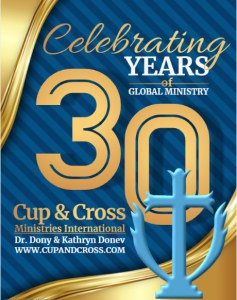 As the fall was approaching, we were invited to ministry with our Bulgarian churches in Cyprus. One of our students from the Bulgarian Theological College had started six churches in different locations across the small Mediterranean island among the Bulgarian migrants. October there was still pretty warm and allowed for extensive travel. We held services twice daily for two weeks with a special conference on the last day.
As the fall was approaching, we were invited to ministry with our Bulgarian churches in Cyprus. One of our students from the Bulgarian Theological College had started six churches in different locations across the small Mediterranean island among the Bulgarian migrants. October there was still pretty warm and allowed for extensive travel. We held services twice daily for two weeks with a special conference on the last day.
But ministry was not so easy in the first couple of days after our arrival. As a matter of fact, I often recall that the first services felt like preaching behind a wall. The message was simply not getting through until we realized a different type of warfare needed to be engaged before the Gospel could be preached freely with power.
Such deep spiritual opposition could be hard to understand in other parts of the world where Christianity has been part of the local culture for centuries. It was challenging for our team as well to pin-point the reason and address it in prayer. But when you see a lady moving like a snake or trace not one, not two, but three young deacons in the ministry who cannot have children, it is pretty clear what needs to be done.
Early missionaries call this “demonic displacement” realizing that in a heavy occult island culture like Cyprus, the powers of darkness must be first spiritually displaced before people can receive the Gospel and be saved. Prayer warfare and intentional fasting quickly became part of our daily routine, and before the first week was over we experienced tremendous outpouring in various churches and even in open air services in locations like Pafos where the apostle Paul was beaten in Acts. As a direct result to this new ministry approach, the conference on the last day were there was attended by some 700 people who came from across the island and filled the tabernacle to such an extent that some had to be seated outside in the yard.
This book should have been published seven years ago in 2013. Its original subtitle was going to read “7 Years in Bulgaria.” Instead, it took seven years to finish it with all documents, research archives and new cases. Now, it is finally here and it finally reads like a story – not just choppy interviews, deposition documented testimonies or court records, but a story of struggle, strength and solitude. A story of life and a story of us.
1995-96 The establishing of the first Bulgarian Church of God in Chicago and its first split
2000-01 The contracted building of the ministry center for the Central Church of God in Sofia
2002-03 The church split in Southaven and what followed next
2005-06 The post-communist split of the Bulgarian Church of God and consecutive sub-denominations
2010-13 The social media network that cost us millions (of souls)
2016 The vote that forced to kill a church
2019-20 The sale of the ministry center for the Central Church of God in Bulgaria
READ: CONFESSIONS of a Pentecostal Preacher
CONFESSIONS of a Pentecostal Preacher
To Mark Alan
We know not why good people have to die,
but we do know we must tell their story…
Chapter I: Beyond the Church and into God
Be without fear in the face of your enemies.
Be brave and upright that God may love thee.
Speak the truth always, even if it leads to your death.
Safeguard the helpless and do no wrong.
That is your oath.
~Kingdom of Heaven (2005)
Separation of church from politics of false religiosity
The phone rang heavy and long. It was 4 AM in Bulgaria, but I was already up. A friend on the other end of the line was calling from South Carolina with a warning of some bad situation. The following morning, I was going to be contacted by the Director questioning why we were ministering in churches outside of our denomination.
The truth was we had ministered in some 300 local churches across the Balkan country of Bulgaria crossing all denominational boundaries and gathering youth from just about every confession. God had used us not only to reach and minister and to lead, but to step into an untouched spiritual realm, to undertake an unfamiliar ministry paradigm and to approach a brand new dimension of reality where He was to be the center of it all. And we had obeyed without questions. Now it was time to pay the price!
* * *
Our denomination, the one to which I remain both critically loyal and loyally critical, spreads over some five generations. Through its century old existence, the struggles and tension between theology and praxis has been in the center. And there, in the very essence of Pentecostalism itself, while some are always celebrating and being celebrated in the office or temple, others are always pushed in the periphery of normal life, hidden from the world behind closed doors and seeking a much deeper experience with God.
These modern day mystics are not only forgotten, but often forbidden. For their riot for righteousness cannot be conceived, contained and controlled by the religious norms of organized officiality. They speak as prophets to a world they so fervently try to escape from, about a reality that does not exist in the normal believer’s mindset. A stage of spirituality that cannot be preached without being lived in the social existence. And a relationship of God that goes far beyond common relationism and into God himself. That God, Who does not abide in offices and temples, but on the cross outside of the city walls…
But I knew nothing of this until that cold winter morning when the phone rang through darkness of the night. Knowing what is coming, rarely changes what we have done to get here.
7 Years in Bulgaria: CONFESSIONS of a Pentecostal Preacher
by Dony K. Donev, D.Min.
Upcoming Releases for United States (October, 2020)
Christmas Book Sale
All books by Cup&Cross on SALE
Clearance sale for the year with new titles coming up in early 2021


